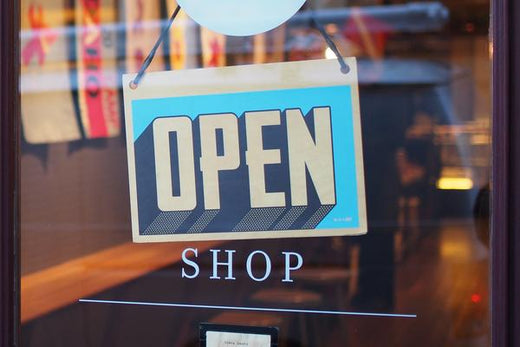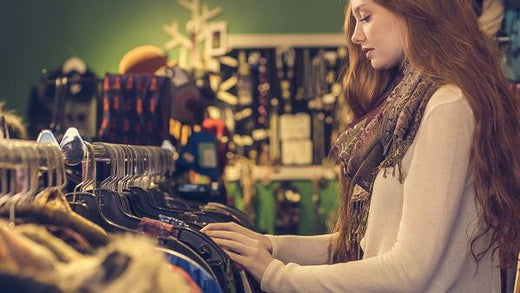
The "Retail Apocalypse" - For Real?
The "Retail Apocalypse" has been a topic of conversation among the retail industry for the better part of two years now. We've seen major "big-box" retailers closing shop while more consumers take to online retailers such as Amazon. Retailers are worried about opening stores when the ecommerce competition is so fierce. If the franchise retailers can't make it, how can SMBs?
This is where we are getting it wrong.
Big-Box Retailers Closing while Specialty Retail Thrives
It is true that in the last year we have seen headlines about Macy's, Sears, Radioshack, J.C. Penny, and other "big-box" retailers closing their stores. While many of these larger franchises failed to keep up with the evolving customer experience trends and technology advances, these store closures do not reflect what is ahead for the larger retail community.
On the contrary, thousands of stores opened in 2017 - a total of 2,861 - consisting of larger retailers such as Dollar General, Ulta, and TJ Maxx, along with more SMB and specialty retailers, and online-only retailers such as Warby Parker. It has also been found that these store closures that keep making headlines are largely due to bankruptcy. This may seem like the very definition of the "Retail Apocalypse", but there is a reason why some retail giants are going bankrupt while others are expanding. The way that consumers shop is changing.
Customer Experience to Beat E-Commerce
Most retailers now have an ecommerce platform where consumers can purchase their items online. Without even mentioning brick and mortar's top competitor (Amazon), we already see ecommerce retail competing with in-store shopping. There is so much convenience in not having to leave your home while purchasing all the items you want and need. How is any retailer supposed to compete with that?
The answer: A better customer experience.
Not only is online shopping the most convenient option for consumers for the sake of mobility, but online shopping also allows the consumer to avoid waiting in long lines, navigating an overly crowded store, or not having the item in stock at the store location they visited. A huge reason why these big-box retailers such as Macy's or J.C. Penny are closing is that they cannot provide the customer experience that the modern consumer wants in order to compete with ecommerce or more specialized retailers.
The Millennial Consumer
Another issue facing retailers that are closing shop is that they don't know how to appeal to millennial consumers. According to an article by Forbes, millennials are making up one fourth of the total population with $200 million in annual buying power. What does this mean? Millennials are doing a lot of shopping! They are also a very influential power over the retail industry.
Millennials are a unique generation in that, unlike the generations before them, they are digital natives and are less influenced by traditional advertising. To clarify, a digital native is someone who was brought up during the age of digital technology, and traditional advertising refers to radio, television, and print advertisements. Instead, millennials are driven to make purchases based on brand authenticity, engagement, and the convenience of making the purchase. In several reports over the last few years, it has been shown that the millennial consumer prefers to buy experiences over items. If retailers cannot keep up with customer experience trends and provide the shopping experience that millennials are looking for, they will be sure to fail.
In addition, the millennial generation is learning to be more frugal. According to Forbes, the second-hand apparel industry is forecasted to grow 11% per year, becoming a $33 billion industry by 2021. With this, they have also found that women who have the highest likelihood of shopping for second-hand clothes are ages 18-24. We can also attribute this fact to the expansion and growth of franchise discount retailers such as TJ Maxx, Costco, Aldi, Dollar General, Walmart, and more.
While the "retail apocalypse" is very real for some, it is proving as a chance for specialty, discount, and SMB retailers to step up and recreate the industry, the customer experience, and brick and mortar retail as a whole.


